A brief history of Dean Guitars
It’s a guitar brand synonymous with some of the biggest names in shred guitar, but what do you know about this history of this storied, troubled but undeniably resilient brand.
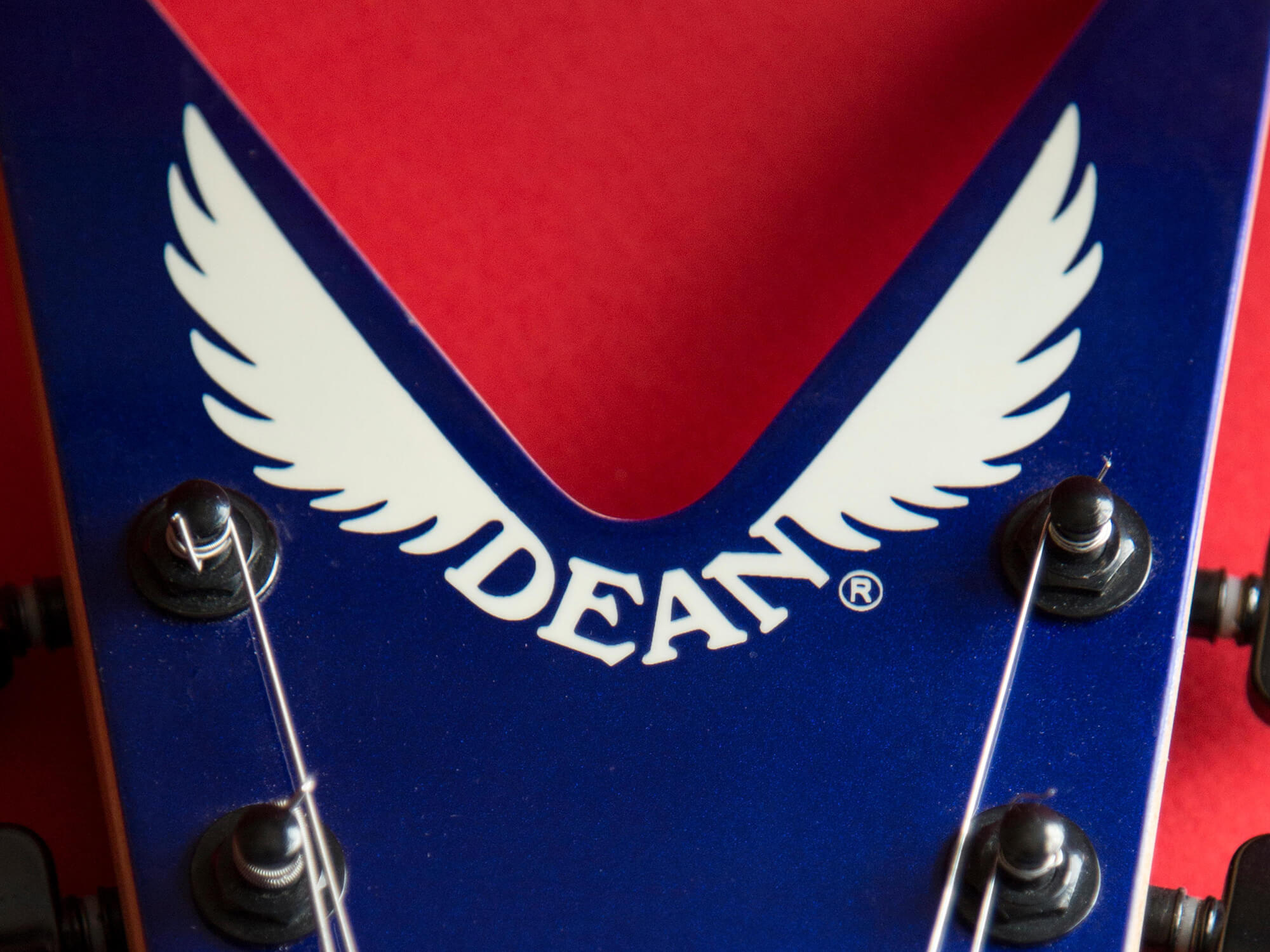
Image: Deborah Brock / Alamy
To tell the story of Dean Guitars, we first need to tell a little of the interesting story of the man who started the company in 1976, Dean Zelinksky. Zelinsky was one of three sons of Robert Zelinksy, who owned and ran a company that manufactured custom fasteners – some of which were used by NASA on early rockets. Robert was tragically killed in a plane crash when Dean was 12 years old, and was raised by his mother alone.
Even before his father’s passing, however, Dean was curious about how things worked – he took apart radios at the age of eight to see how they worked, and later on he did the same with a Gibson Flying V – even sawing the guitar in half to try and work out how to make a better instrument.
Following his natural predilections, the young Dean soon began doing work for local music shops around the greater Chicago area doing repairs and custom paint jobs. He even went up to Kalamazoo, Michigan, at one point for a tour of the Gibson factory, all the while taking notes on what he would need to start his own business making guitars. Dean started his own company while still in high school and began to sell his own guitars and, in 1977, Dean Guitars was officially founded.
From 1977 until 1991, Zelinsky developed numerous custom builds and bespoke designs that were a lot more out-there and forward thinking than many guitar brands in the era of the Superstrat.
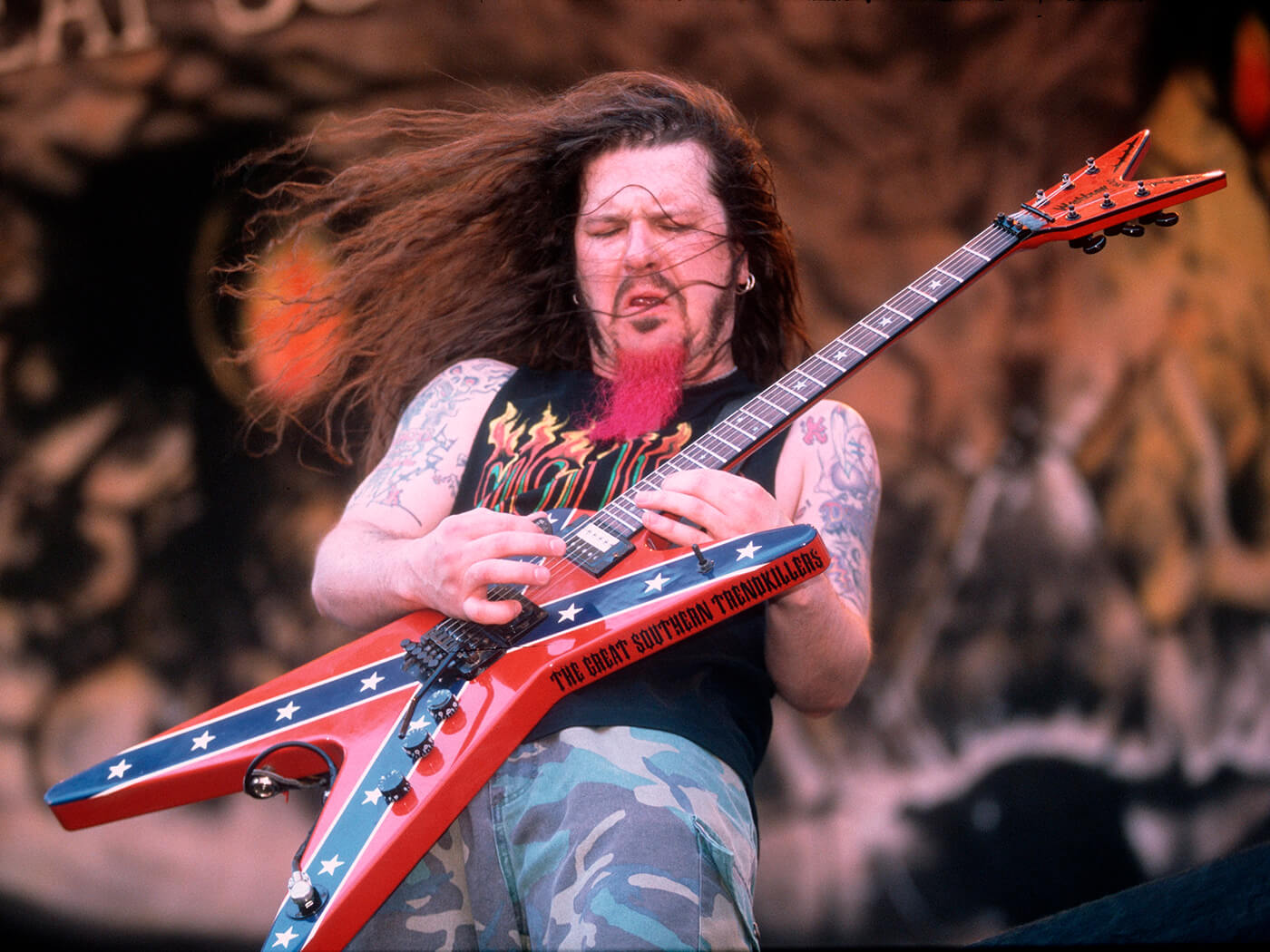
The first and perhaps the most famous production model to come out of that timeframe was the Dean ML. The ML was so named as a tribute to his best friend from high school, Matt Lynn, who passed away after a battle with cancer at the tragically young age of 17. Many have described the ML as having the bottom half of a Gibson Flying V and the top half of a Gibson Explorer and a headstock shape that nodded to the Gibson Futura – regardless of its influences, it was certainly a unique and eye-catching design.
The ML would become the company’s flagship model and would eventually be used by a new crop of rock and roll guitarists like Michael Angelo Batio, Michael Schenker, Dave Mustaine, and, of course, Dimebag Darrell Abbott, who’s ML dawned the iconic lightning paint job and was dubbed the ‘Dean From Hell’.
While the ML was taking the hard rock world by storm, Zelinsky continued to make custom instruments for bands like ZZ Top. And it was Zelinsky who made the iconic “furry” guitars that Billy Gibbons and Dusty Hill made famous in the Legs video. In fact, the guitar and bass from that video depicted another Dean design called the Dean Z – a guitar more closely inspired by the Gibson Explorer. The Z made its debut in 1977 alongside the Cadillac and V models. In addition to the ML, V, and Z models, Zelinsky was also responsible for the Evo and Soltero, which didn’t debut until 2006.
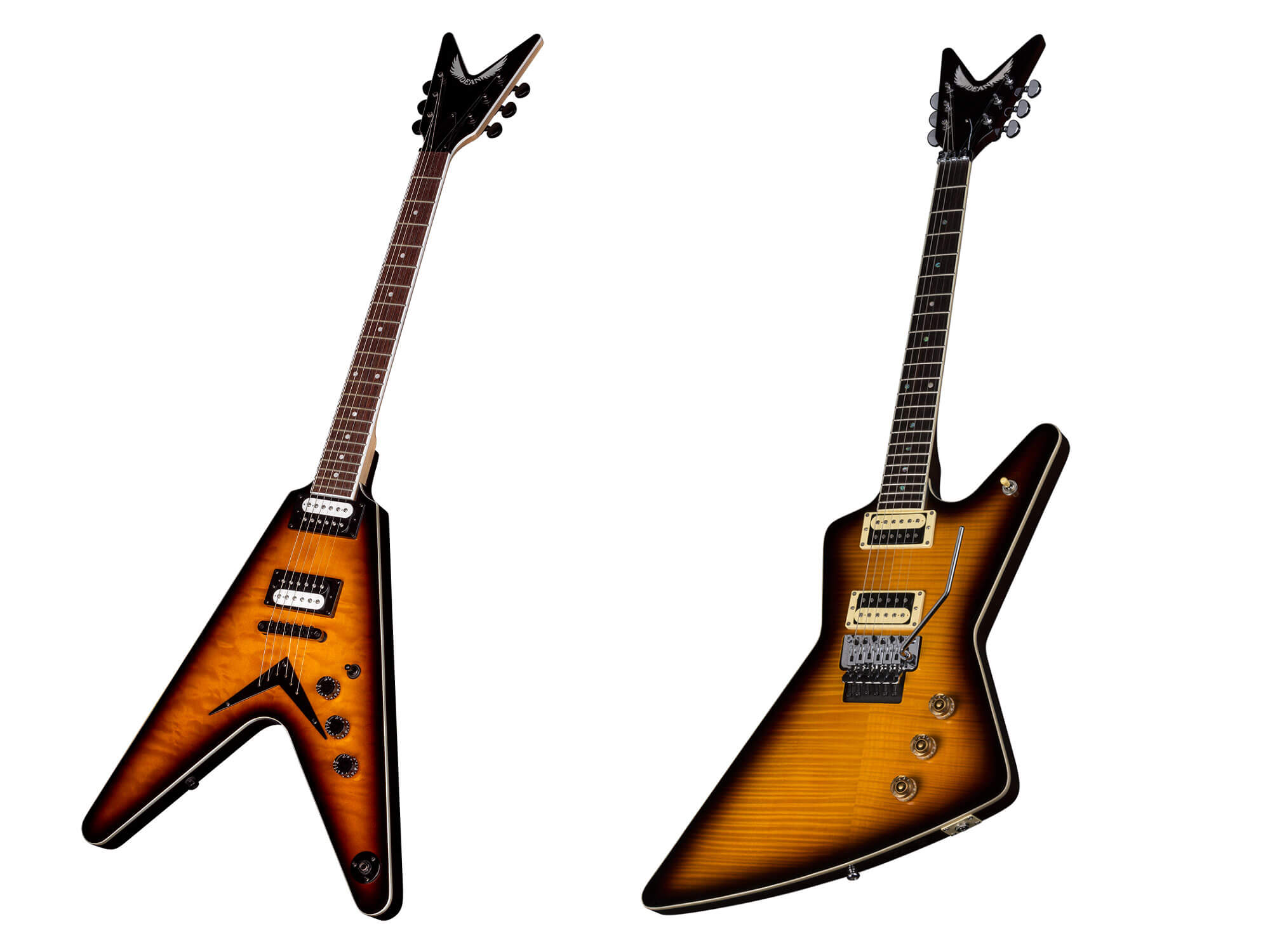
While designing and building guitars is the cornerstone of any guitar company, one cannot underestimate the importance of marketing those instruments, and Zelinsky was an expert in marketing and had no fear of the spotlight. People Magazine did a story on him when he was only 21, and he would supercharge the – generously – ‘of its time’ phenomenon of ‘booth babes’ at NAMM shows by hiring Playboy models to come and hang out at the Dean stand.
Cringe and unpleasant as that phenomenon might seem through a modern lens, it was a situation that worked out well for Zelinsky – he went on to marry a Playboy model and actually sold the company so he could spend more time with his family. In the intervening years he’d keep busy creating custom entertainment centres and high-end furniture for high-end clients in Chicago.
The Dean brand was initially sold to Oscar Medeiros of Tropical Music, and for a few years, the brand focused on producing guitars to the Latin market, but the second notable era of Dean would begin in 1997 when the brand was sold to Florida businessman (and one-time touring bassist for the likes of Michael Shenker and Michael Angelo Batio) Elliott Rubinson and his Armadillo Enterprises, which also owned Luna Guitars and Ddrum.
Armadillo moved Dean production to Tampa, Florida, and Rubinson quickly set about rebuilding Dean’s artist roster – signing up Shenker, Batio, Leslie West, Dave Mustaine and perhaps most notably of all, Dimebag Darrell – it reaffirmed Dean’s credentials as a guitar brand for heavy rock and metal players. In 2000, Zelinksy returned to the company as a consultant focused on R&D, marketing and artist relations – the most notable and famous example of this partnership was Dime’s Razorback guitar – an ML-inspired model but even more pointy and metal. Tragically, just weeks after Dime signed his endorsement deals, he was murdered on stage in December 2004.
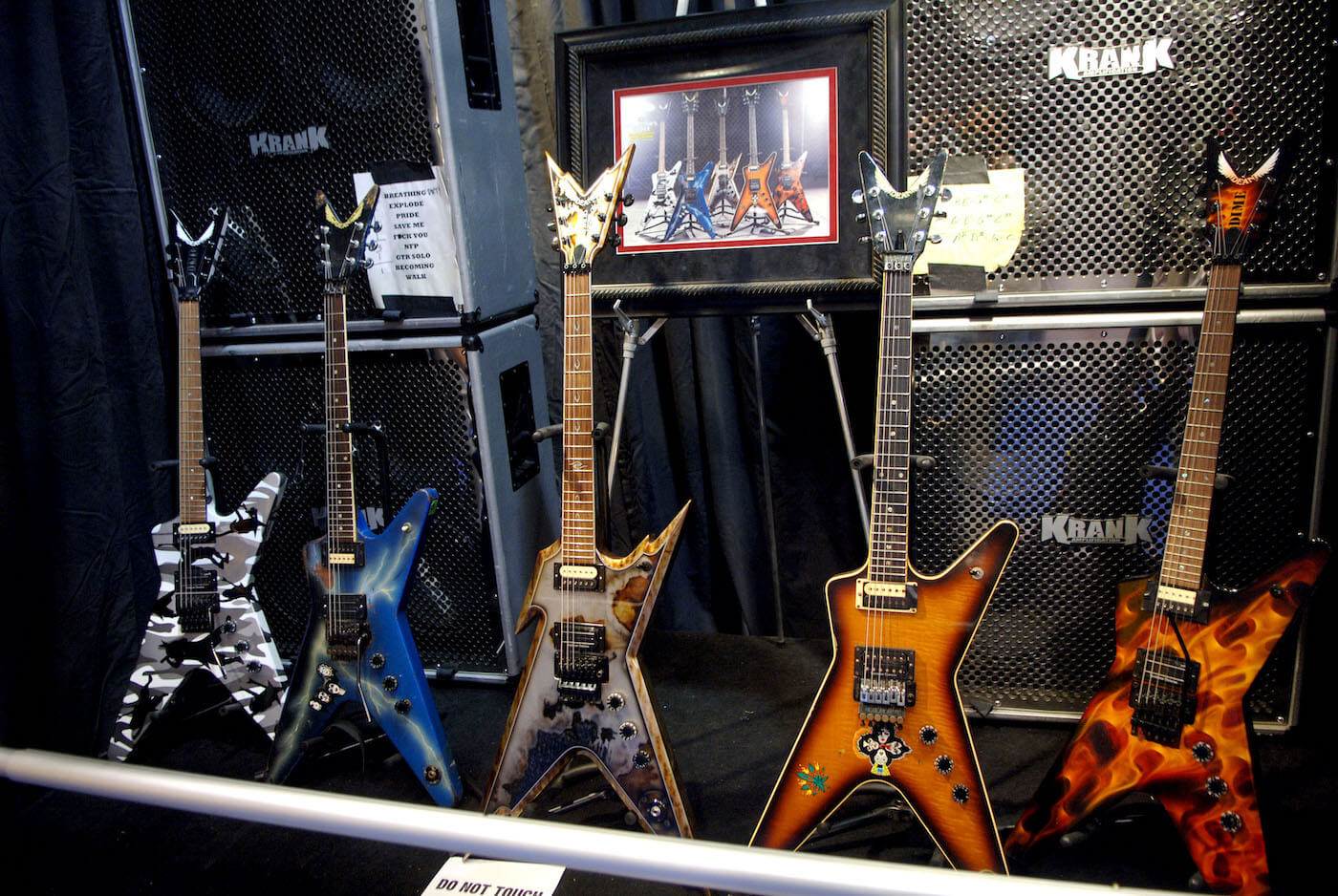
The Razorback (and its sibling, the Razorback V) would go on to become some of Dean’s most iconic and popular modern creations, with A-list guitarists such as Zakk Wylde and Matt Heafy. Dime also requested that Dean produce a Razorback for his hero and friend Eddie Van Halen, finished in the iconic Van Halen stripes.
In 2017, Rubinson passed away and control of the company passed to his son Evan. In the years since, Dean continued to produce guitars in the USA, carving out a niche among the heavy metal guitar community, and also diversifying into Asian-made budget instruments. One of the biggest names that Dean partnered with in recent years is former Slayer main man Kerry King – in 2019 the King V arrived, putting a unique ‘snakebite’ spin on the Flying V formula.
In 2019, however, Dean would enter a difficult period, kicked off by Armadillo Enterprises being sued by Gibson Brands for trademark infringement, trademark counterfeiting, unfair competition and trademark dilution. The multi-million dollar suit related to some of Dean’s most long-running instruments – the V and Z – as well as its alleged use of various Gibson headstocks and other trademarks.
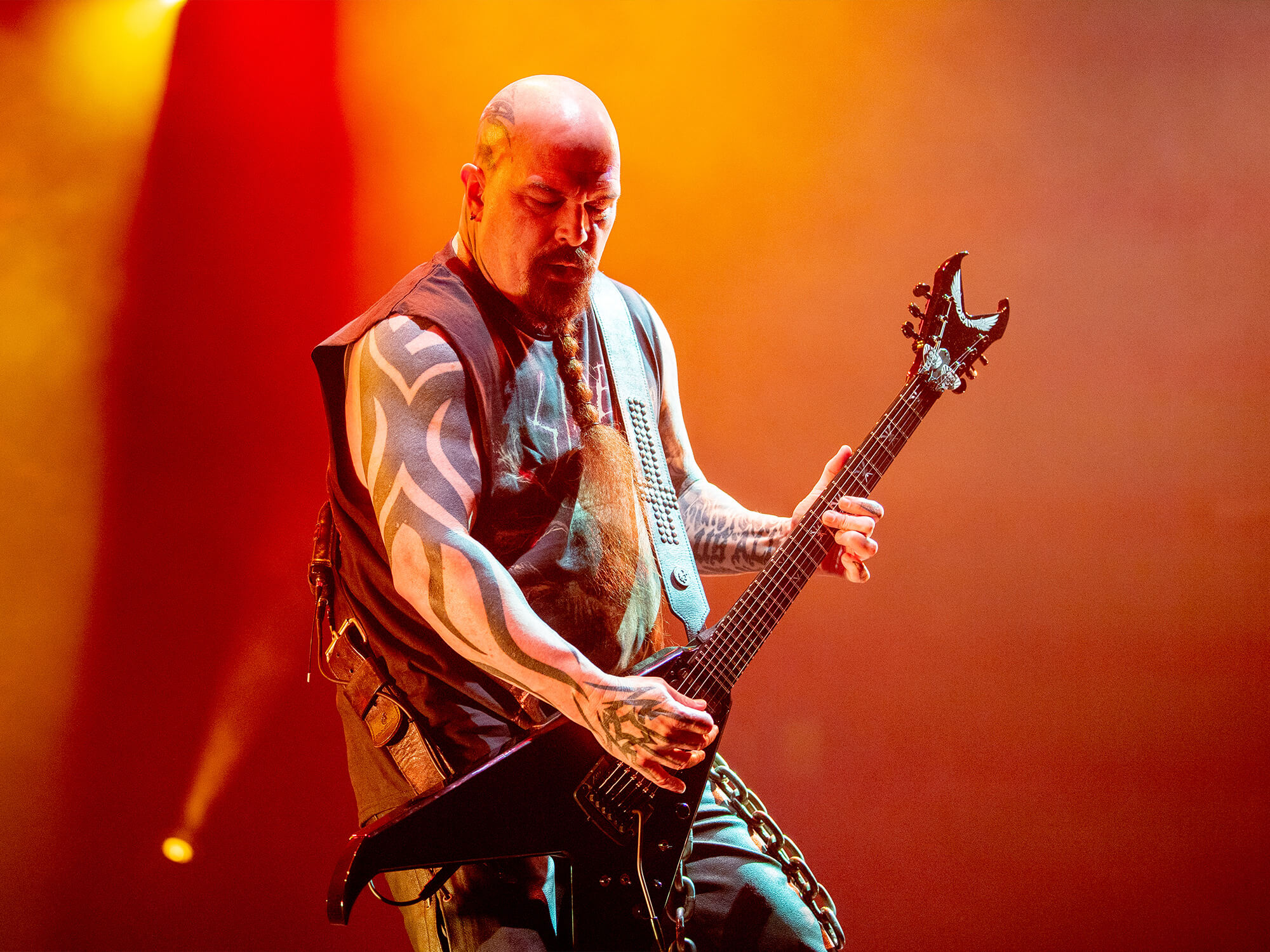
Dean strenuously denied the accusations in Gibson’s suit and promised to launch a counter-claim that would seek to cancel Gibson’s trademarks, but ultimately the court found in Gibson’s favour in 2022 after a two-week trial. Dean promised to appeal the ruling, but in 2023 the brand was found in civil contempt of court for continuing to list the V and Z models on its website.
That wouldn’t be the end of the challenging times for Dean. In 2021 Dean was sued by the Dimebag Darrell estate over the Razorback trademarks, Evan Rubinson left the company in 2022, and the company was also faced with foreclosure proceedings in 2023 over an unpaid $4 million bank loan.
Dean’s appeal against the Gibson verdict remains in process, and the company is still pushing ahead with new products – launching two new guitars as recently as NAMM 2024 – the Zero and Vengeance. The legacy of that original ML model also continues to be a key part of the Dean line-up, of a storied, troubled but undeniably resilient American guitar brand.
Editor’s note: an earlier version of this article stated that Evan Rubinson was still part of Armadillo Enterprises, which has now been corrected.
